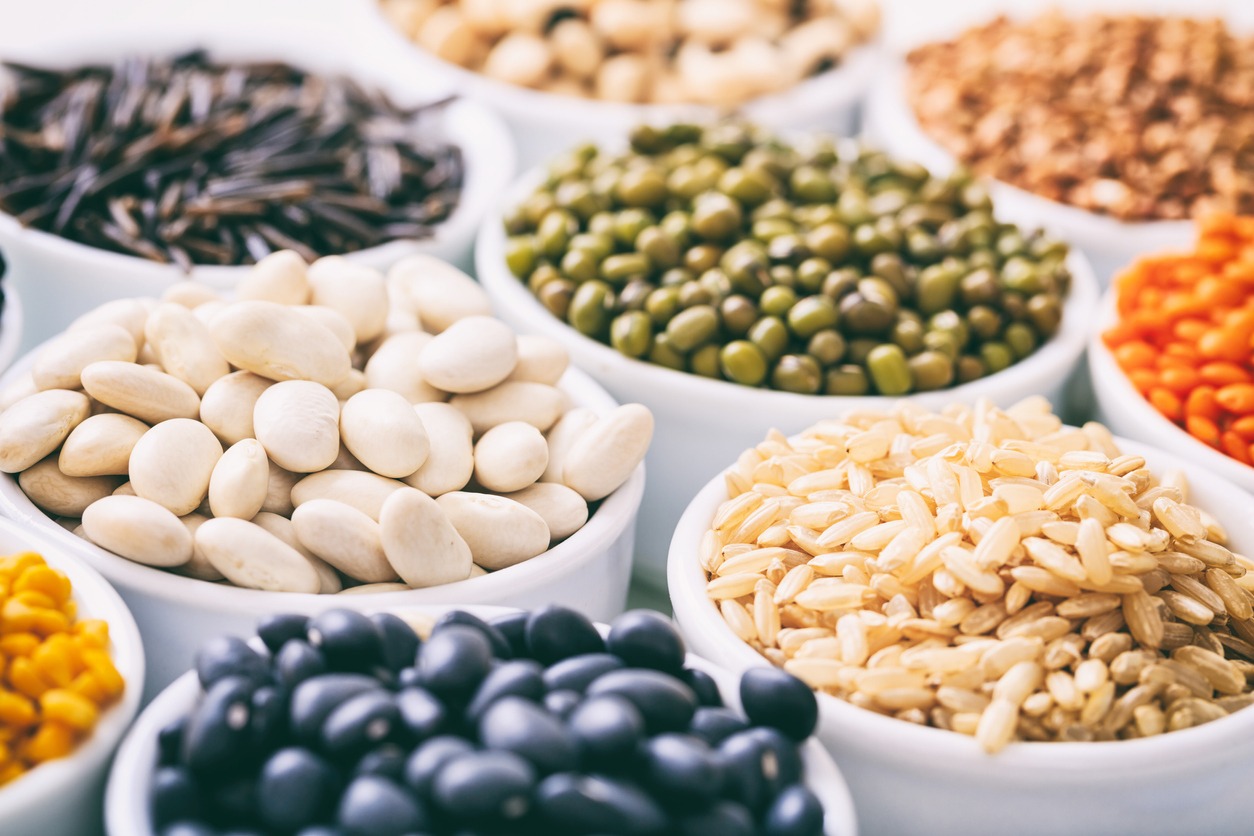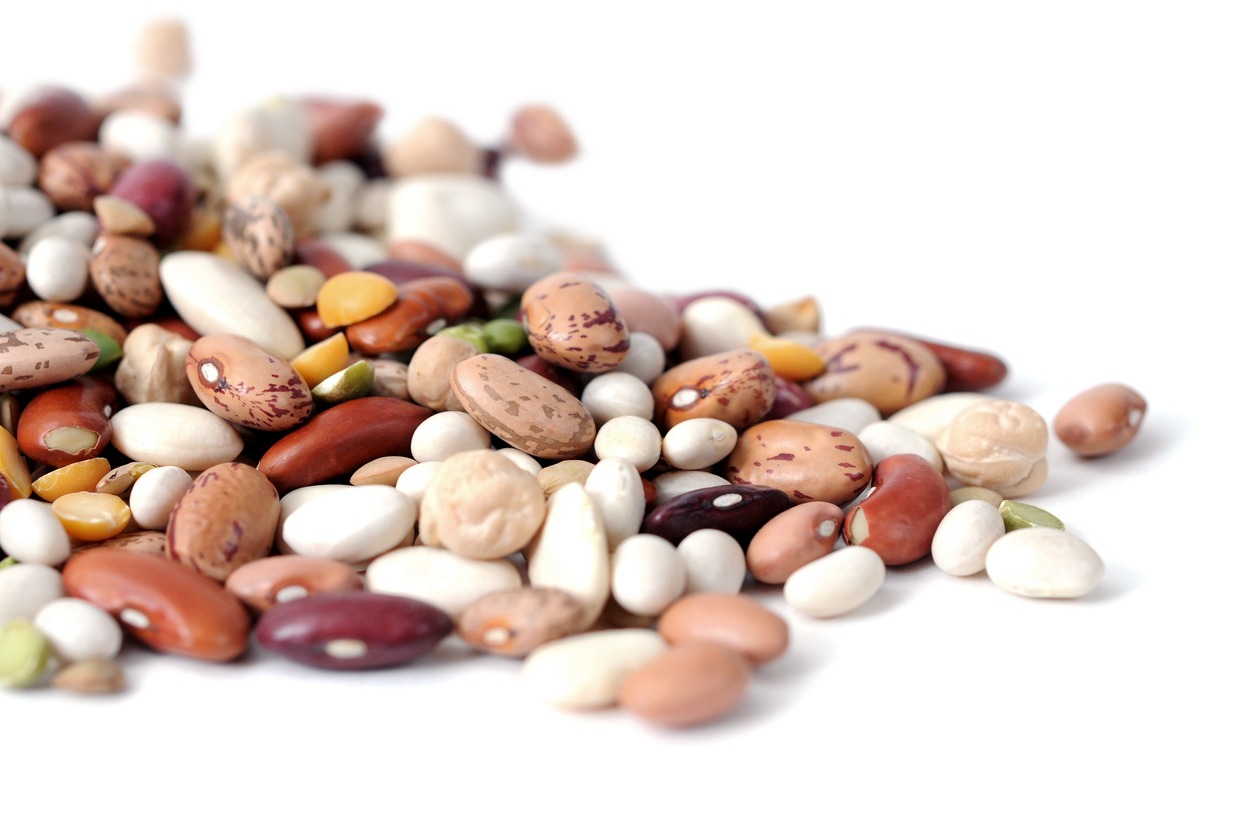As we begin to notice the effects of our diet and eating habits on the planet, many have chosen to move away from eating animal products, primarily meat, and look for ways to reduce our ecological footprint. This has led many of us to explore the worlds of vegetarianism and veganism as we try to be more accountable for what we consume. But as we attempt to decrease our reliance on meat, it’s important that we continue to get the necessary daily nutrients to keep us healthy and strong. Fortunately, dry beans are a trusty source of protein.
Dry beans in their various forms have long been a staple in Central and South American dishes. However, they are increasingly gaining in popularity in Western culture as people begin to be more creative in the way they are eating. With such a dependence on dry beans arising, your access to the product is slowly increasing. This has opened up a whole new demographic for independent sellers, such as grainworks.com. But for those who have never bought dry beans before, let’s explore some options of where you can purchase dry beans.
What are dry beans?
A member of the legume family, dry beans are produced in pods. Their physical shape allows them to be distinguished from peas and lentils, as they are often oval-shaped with a slight curve. Dry beans are dry-packaged in sealed bags or sacks, leaving the hydration process up to you. There are many different types of dry beans, including pinto, kidney, black, white, and navy beans.
Dry beans are known for being an economical source of protein. They are also low in fat and rich in fibre and other nutrients. Studies have also shown that dry beans offer several health benefits, such as reducing the risk of chronic disease, cardiovascular disease, and some cancers, while also helping with weight maintenance and gut health.
Where can you buy dry beans?
Grocery Store
If you’re in need of dry beans immediately, your best bet would be to turn to your local grocery store. While they may not have the range of selection that you are hoping for, many chain grocers understand that the demand for dry beans is increasing, so there should be a respectable amount of dry beans available for you to choose from. While at the store, look for clean, firm, whole beans. Since they are dry, you don’t have to worry too much about how well they’ll keep; therefore, it’s recommended that you purchase enough for approximately six months, thus saving you another trip to the store. Dry beans are similar to rice in that they expand when cooked, so one cup of dried beans is roughly equivalent to three cups of cooked beans.
Online
This may seem fairly obvious, but Googling “dry beans” is a great second option. This will provide you with a few major sellers and allow you to start exploring your options. However, the main obstacle that you may encounter by having such a simple search phrase is the prevalent advertisement of larger chains, such as Amazon or Wal-mart. While there’s nothing wrong with turning to one of these providers, they are unable to offer a more curated selection, thus limiting your choices.
Therefore, adding more specific details into your Google search, such as “Canada” or “organic,” may provide you with options that better appeal to you.
Organic Brands
When it comes to dry beans, there’s no one you can trust more to know their products than independent organic sellers. Not only can you feel good about turning to a smaller business and supporting their work, but your decision also positively impacts the environment. Organic farming rebuilds soil health by rotating crops to ensure the land is not being overworked while also avoiding the use of pesticides. This, in turn, stops harmful chemicals from trickling into our water supply and polluting it. Organic farming also results in greater biodiversity and releases fewer greenhouse gas emissions. By supporting organic brands, you can help ensure their future success.
Additionally, organic brands tend to have a greater range of options when buying dry beans from them. This means that you can explore their products and pick the dry bean that will enhance your cooking experience, rather than settling for whatever’s on the grocery store’s shelf.
If you’re unsure of where to look for organic dry bean brands, consider investigating a company that you’re already familiar with. Millers rarely just focus on one item, so if you have a favourite brand when it comes to your grains, flours, seeds, or even other types of beans, consider starting there! Their online catalogue will be able to show you whether they have what you’re looking for or not.
Farmers’ Markets
Exploring your farmers’ market is an excellent way to discover local farmers and brands. Plus, you have the opportunity to speak to one of the workers face-to-face, allowing you to ask questions and get their advice. Establishing a relationship with a local miller can enable you to try new products and expand your horizons.
How should I store my dry beans?
As the name suggests, it’s recommended that you store your dry beans in a cool, dry place, regardless of whether your bag has been opened or not. However, if you do open the bag, consider transferring the dry beans into a container that can be properly sealed to ensure they don’t lose additional moisture. Oddly enough, dry beans can actually begin to dry out even more over time, so while none of their nutritional value is lost, they can take longer to cook.
Why should I soak my dry beans before consuming them?
Soaking your dry beans allows them to soften and for moisture to return to the bean. This both reduces the cooking time and makes them easier to digest. There are several methods by which you can soak your dry beans, but even the quickest way requires at least an hour, so give yourself plenty of time when incorporating dry beans into your recipe.


